#fanactivism
Explore tagged Tumblr posts
Text
Hello Tumblr,
Today I need your help! I'm doing research for my thesis on social media platforms and audiovisual content (especially on how fan-activism can make the studios change a series or film).
Do you have any example of that? All fandoms are welcome, however small, as long as the studios listened to your worries/discontent and changed what was originally planned (and it's even better if this interaction happened on social media!).
For example: #ReleaseTheSnyderCut, the Sonic SFX affair, Sense8's rescue...
I love learning about fandoms so I can't wait to see your response!
Please reblog so this can get more attention, thanks Tumblr people ❤️
(also I will make a survey in a few weeks to see how you people feel about the big studios, still regarding this thesis, so stay near!)
#fandom#fandoms#fandom history#all fandoms#fanactivism#marvel#disney#netflix#sonic#sense8#zack snyders justice league#movie history#serie tv#series#mcu#twitter#facebook#tumblr#tiktok
4 notes
·
View notes
Text
Thank you NationSwell!

NationSwell is truly dedicated to positive change. Their sponsorship enabled #CampGLA2021 to be the success it was—and we at Fandom Forward are so grateful! We encourage folks to check them out, especially if your organization is looking to broaden its social impact! https://nationswell.com/
4 notes
·
View notes
Text
Fandom and Fan Activism
Living in a world that is full of entertainment these days, it has always been widely seen that people or netizens are heavily involved in fandom activities. Fandom is known as a subculture that evolves on a particular pop culture format or series. In this context, this term “fandom” is particularly applied to diehard fans out there who are crazily involved in television series, movies, characters, music and games. Often, fandom will occur when fans of the pop culture develop their shared experiences on a specific pop culture of theirs. This would include those specially made vocabulary terms, pastimes as well as traditions among themselves which will in a way resemble the subculture of it. Basically, we can say that the term fandom is a subculture that evolves out of enthusiasm for a particular pop culture (Spacey 2017).
Due to the growing usage of the Internet, fan activism has apparently been increasing in volume in the world of pop culture these days. For instance, the extent of contemporary fan activism can be seen through fan discontent that has been expressed through protest activity. This involves social movements of fans’ protest tactics which shows the eagerness in themselves to make a difference in the pop culture of their favorite idol (Earl & Kimport 2009, p. 225).

I believe most of us here can be categorized as a deeply devoted fan. Well, this can be of anything, ranging from singers such as Camila Cabello, to movie series like Fast and Furious and even to DC comics fictional characters. Of course, we can never deny that fandom has a strong way of influence and may take up a significant part of our social, emotional and even mental aspect of life. Social media can be seen easily to increase the interactions within the fan culture. The form of interactions has made the connection between fans to grow closer and stronger, by allowing them to interact and bond with each other over a common interest (Social media and its positive affect on fan culture 2014). By this, fans are able to voice out their opinions and own perspectives such as giving feedbacks to producers and comment on how their idol has performed their work.
YouTube is and always has been one of the top social media platforms for media audiences as well as fans to get exposed to all activities related to fandom. An American singer and songwriter, Madilyn Bailey has released quite a number of albums on song covers. Currently, she has 5,627,886 subscribers on YouTube and has fans from all over the world. Using the YouTube as a platform for her to interact with her fans, she has done many songs covers that are requested by her fans who commented on her YouTube channel. Being an admired idol or singer to many fans out there, Madilyn often thanked her followers and fans in the comments of her videos as well.


List of References
Earl, J & Kimport, K 2009, ‘Movement societies and digital protest: Fan activism and other nonpolitical protest online’, Sociological Theory, vol. 27, no. 3, pp. 220-243.
Social media and its positive affect on fan culture 2014, Rampages, viewed 10 November 2018, <https://rampages.us/tommyspage/work-1/>.
Spacey, J 2017, What is fandom?, Simplicable, viewed 10 November 2018, <https://simplicable.com/new/fandom>.
6 notes
·
View notes
Text
Fandom & Fan Activism
The social network offers various forms of global interaction, even changing the social interaction landscape. As social media become more embedded in our lives, more and more people engage in this new virtual landscape, and fan communities along grown in this social influence.
Tumblr, no doubt, has become one of the main platforms that bring people together by shared passions, and fandom is no stranger on Tumblr.

Fandom is formed by people who share the same likings, collective preferences and those who are “fans” to something. While communities on social media or fandoms can spring up anywhere, fandom is full of gatekeeping. To “maintain” a fandom, boundaries are drawn between “true fans” and “casual fans” (Locke 2017). To be in a fandom, you have to be real fans. Not just real fans, but REAL fans. It is about self-definition - how much you define yourself to be “obsessed” of something, to feel qualified as a “top fan” of something, someone or anything. When it comes to fandom, it is no longer about what you love, but how you love – do you love enough. If you do not love hard enough, you probably may not even be “eligible” to be a part of the fandom, and that’s how the boundary line is drawn.

Fandom is vast and huge, and it can be a powerful critical tool. And when that happens, fan activism happens. Fan activism, defined as “civic engagement and political participation that emerge from within fan culture itself, often in response to the shared interests of fans, framed through metaphors drawn from popular and participatory culture” (Jenkins & Shrestova 2006). In fan activism, fans participate, they gather and mobilize support for their favourite causes. With this participatory culture, fans participate in social or political activism to express their beliefs and opinions. For example, marriage equality, favourite celebrity, gay right parade. However, some fans express their concerns immorally just to communicate their disagreement or dislike towards something, and it is unjust to the others where they get verbally attacked or persecuted just because they do not share the same piece of opinion, or just be different.

Clare McBride, a lesbian, claimed that she was not treated nicely for being a queer woman. Although fandom has become a gateway for queer fans of all genders to safely explore their queerness, it was a different case for her. Despite there’s an existing LGBTQIA community, where those fans consider themselves allies, their desire to support for gay male characters far outweighed their support for gay female characters. She came across posts expressing outright disgust for queer women/lesbians, which actively damaged her. As she tried to overcome the emotional pressure, she said she could never bridge over the gap between male and female gay characters (McBride 2018).
References
Invisible Children n.d., Our Story, Invisible Children, viewed 9 November 2019, <https://invisiblechildren.com/our-story/>.
Jenkins, H & Shrestova, S 2012, ‘Up, up and away! The potential of fan activism’, Transformative Works and Cultures, vol. 10, <https://doi.org/10.3983/twc.2012.0435>.
Locke, M 2017, ‘5 things I learned studying fandom’, Medium, 14 September, viewed 9 November 2018, <https://medium.com/s/5-things-i-learned/5-things-i-learned-studying-fandom-2bb857fdef03>.
McBride, C 2018, ‘When fan aggression disguises itself as fan activism’, The Mary Sue, 26 October, viewed 10 November 2018, <https://www.themarysue.com/fan-aggression-fan-activism/>.
4 notes
·
View notes
Text
Fandom and Fan activism are interrelated??
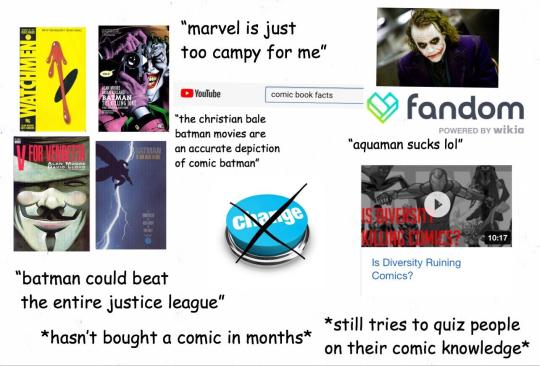
Are you a fan of anything? Comment below!
In recent years, we can observe the rise in fan activism all over various social media platforms. Indeed, social media has became one of the most powerful forms of activism in this digital era and fandom has a massive influence on directing the trend of activism. Since the advent of technology, fans specifically the pop culture fans are being associated with negative stereotypes. However, studies do found out that there are both sides when it comes to fandom. Fan activism is one of the result of fandom. It has brought great impact to social media and changes the way people look at fandom....
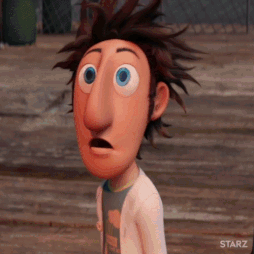
So, what is fandom and fan activism?
Fandom: refers to subcultures of fans, brand and consumption communities as well as consumer tribes ( Fuschillo 2018, p.3). It also necessitates relationships among fellow fans who share common interests, create a common culkture and develop networks and institutions (Jenkins & Shresthova 2012).
Fan Activism: forms of political participation and civic engagement that emerge from within fan culture itself. It is often conducted through the infrastructure of existing fans and in response to the shared interest of fans. Moreover, it is usually framed through metaphors deduced from well known and participatory culture (Jenkins & Shresthova 2012).
How does fandom leads to fan activism?
Fandom allows its fans to explore fabricated worlds through a space that operate according to different laws, norms and structures than those in real life. Through building good relationships in the community of fans, it forms a participatory culture and aids in developing shared interests. This ability to build networks and communities as well as to imagine alternatives, is a basic prerequisite for political activism (Jenkins & Shresthova 2012).
Besides, studies found out that there is an apparent rise in the volume of fan activism due to the growing use of the internet to register fan claims and fandom (Earl & Kimport 2009, p.220). Furthermore, through fandom and fan activism, it is also used as a marketing tool for businesses to increase the visibility of their products and services by participating in the activism movement. Click the play button below to explore more about how fandom leads to activism...
youtube
Conclusion:
Fan Activism is a powerful tool in getting people’s attention about certain issue and it is usually very effective. However, it must be conducted with care as there are people who may not conduct it with good intention which may bring adverse effect to the society.
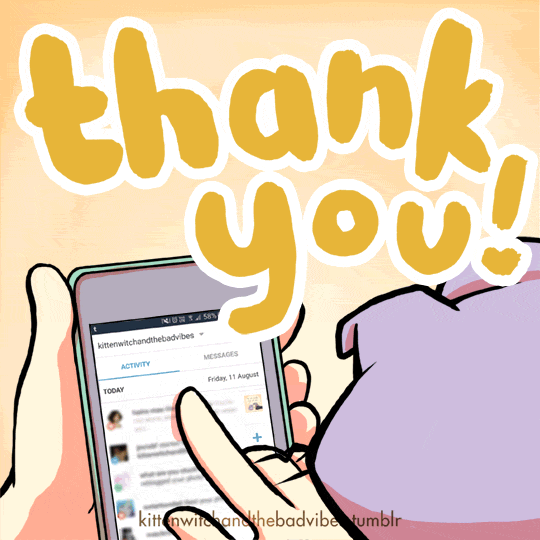
References:
Fuschillo, G 2018, ‘Fans, fandoms, or fanaticism?’, Journal of Consumer Culture, pp.1-19.
Jenkins, H & Shresthova, S 2012, “Up, up, and away! The power and potential of fan activism,” Transformative Works and Cultures, vol. 10.
Earl, J. & Kimport, K. 2009, ‘Movement Societies and Digital Protest: Fan Activism and Other Nonpolitical Protest Online*’, Sociological Theory, vol. 27, no. 3, pp. 220-243,344-345.
3 notes
·
View notes
Text
Fandom & fan activism: Truly toxic or considerably constructive?
How many of us have firsthand or secondhand experience of the conversation below?
X: What music do you like?
Y: I’m a fan of One Direction’s stuff!
X: Oh, you’re one of them [scorns]
And by them, X probably meant:

We sort of understand what warranted X’s negative reaction when it was discovered that Y was part of the One Direction – or Directioner – fandom. But before we dive into why one would rather get maced in the face than to admit to being part of a fandom, and whether it’s really all that bad, let’s first begin by answering the most basic question: What is a fandom?
The term fandom is popularly used by the younger generation as means of identifying oneself with a social group that is a fan base of any entertainment content in the form of TV shows, films, novels, music, games or even celebrities. Thus, to be part of a fandom of something, one must first be a fan. But in today’s world populated with people who are quick to judge, fans have become marginalized and are used to being mocked by the media. To be a fan now, is to be shadowed by social stigma that paints you (if you’re a fan) as brainless and borderline crazy; something to be avoided like a plague.

However! Digital Communities MDA20009 and I are here to present fans and fandom to you in a new and more positive light; to show the other side of fan culture that usually goes unnoticed or blatantly ignored – the side of it that views these media consumers as proactive, critically engaged and creative instead of over-the-top, obsessive and people-who-have-too-much-time-on-their-hands.
To understand this, we must first look into the participatory culture present in fan-fictions, fandom web forums and when game companies give public access to their design tools to source for programmers (Jenkins 2006). Members of this culture is defined by Jenkins (2006) as someone who’s comfortable with artistic expressions and civic engagement; supportive of the creation and sharing of one’s creations with others; has experienced some kind of informal mentorship whereby knowledge from those most experienced are shared with novices; believe the significance in their contributions; and feel a degree of social connection with other members. It should also be noted that contributions do not have to be provided by every member, but they should believe that they are welcomed to contribute when ready and that their contributions will be valued and appreciated.
Based on this fundamental fandom concept, it would seem that the roots of fandom are pretty wholesome and inclusive.

Yet, people still view fandom as the black hole that created a participation culture practiced by problematic people who attract other problematic people into the picture. They forget that participation is an action that has existed long before computers or the internet was created, and that their creation merely enabled people to take this action across the physical plane onto the virtual plane to be developed into fandom’s current participatory culture. Moreover, instead of focusing so religiously on how fandom is stupefying the next generation, more attention should be directed at how its participatory culture are opening doors for the same generation to forge their creativity, develop certain skills and knowledge and boost their self-confidence – all of which would benefit these youngsters in the future as working adults.
And to those who have doubts about how fandom actually affords all these benefits, Henry Jenkins got you covered.

In his blog about the participatory culture, he highlighted that people part of a fandom are already in this self-enrichment process through affiliations in online communities, expressions from producing new creative content, collaborative problem-solving with others to complete tasks and develop new knowledge, and circulations which shape the flow of media (such as blogging).
Besides, who’s to say that fandom’s contribution to a fan’s growth as an individual stops there? Who’s to say that fans can’t achieve higher levels of self- and societal awareness and become activists themselves?
And thus on the 12th day of Christmas, God gave us fan activism.
Based on its definition by Jenkins, fan activism can be understood as a form of civic engagement and political participation emanated from fan culture and are basically fan-driven efforts to engage and address civic, social and political issues. Using superheroes or fictional elements from novels for activism is a classic example of fan activism whereby people looking to promote social change are utilizing the emotional and imaginative properties of popular culture to connect more intensely with their supporters (Jenkin & Shrestovva 2012).
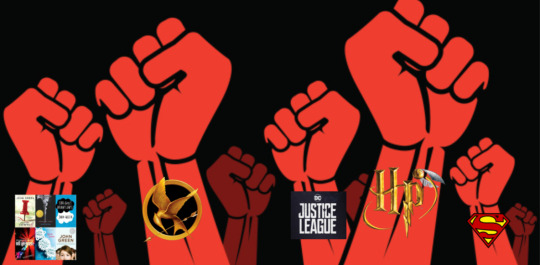
And because popular culture – especially blockbuster franchises – are known and favored by many, it can serve as a common reference point for both protesters and casual observers and be used as an effective community-bridging tool for organizing collective movements (Jenkin & Shrestovva 2012). Additionally, this would make activism work more appealing and approachable to the younger generation who are usually excluded from traditional, ‘adults-only’ campaigns especially since social media is heavily used for for this new kind of social campaign.
But fans don’t usually wake up one morning and think, “I’m going to fight sex trafficking today.” What links fans with actual social or political activism and motivates them to be part of an activist group is the subject matter of each fandom aka the singers, the actors, the celebrities.
Some examples of celebrity-inspired fan activism for social causes include Alyssa Milano’s constant encouragement of fans to embrace female power and to stand up against sexual harassment; how Mark Ruffalo has never stopped being vocal on issues like sexual harassment and fracking in hopes to inspire fans to fight for the same causes; and BTS’ collaboration with UNICEF for an anti-violence campaign to raise funds and awareness among fans towards creating a safer, violence-free world for children.

Although there have been murmurs of discontent from fans who resist the idea of mixing something as serious as activism into simple, care-free fan activities, it is hard to forgo the beneficial elements of fandom in paving a path to social activism and influencing fans to use it for analysis, networking, mobilization and communication related to campaigns for social causes, which is ultimately a big plus for societies in general.
Hence, my verdict on the topic:
Fandom and fan activism are constructive when it is viewed and understood from an objective, unbiased perspective. Moreover, I personally think that fandom comes very close to being the perfect instrument in facilitating fights for social causes because as mentioned in my previous blog about social media’s role in the activism world, individuals with fame written in their résumé aka celebrities tend to make good symbols of movements because of their widely established identity.
These famous faces – the subject of fandom – who are already admired, respected and idolized by many make good leaders in uniting people among a socially diverse constituency to come together for a cause. They can easily serve as the guitar pick used to struck the emotional chord of their fans, the face of movements that activists have spent most of their life fighting for, and the key to reaching millions and millions of people that can be made aware of the rising social issues that they otherwise would remain ignorant about....that is, if these celebrities are willing to stand in the limelight and establish themselves as a true blue activist, just like good ol’ Mark Ruffalo.
So, to all famed people out there: stay informed, stay aware, be a Mark Ruffalo (minus the anger issues).

References
Jenkins, H 2006, ‘Convergence culture: Where old and new media collide’, NYU Press.
Jenkins, H & Shrestova, S 2012, ‘Up, up and away! The potential of fan activism’, Transformative Works and Cultures, Vol 10.
Jenkins, H 2006, ‘Introduction: Confessions of an Aca-Fan’, Fans, Bloggers and Gamers: Exploring Participatory Culture, NYU Press, New York, pp. 1-6.
3 notes
·
View notes
Text
Fandom & Fan Activism
Today, to most Internet-users, social networking sites are important tools for them but not all would consider themselves as members of online communities where interactions and connections between members occur almost exclusively online. Media fandoms have become prominent examples of online communities today. Fandoms can be briefly described as community of fans that share interests in books, movies, TV shows, bands, sports teams, celebrities and other types of media.

Fandoms have become a perceptible and prominent subculture where fans depend on social networking sites and fan forums to make connections by finding other fans online thus building networks of engagement. Communications online and its immediacy nature and global access provides fandoms the platform to quickly grow their networks and developing relationships with other fans around the world has never been easier!

However, fandom is not restricted to only online technologies despite it being the main platform of interaction. There are many examples of face-to-face events and activities such as comic conventions or normally referred to as “Comic con”.Comic con draws thousands and thousands of fans to meet and fandom-specific clubs have grown to be more common. One thing that I find interesting about fandoms is that since most of the interactions between fans occurs online, they transcend cultural, linguistic and international borders.
According to Jenkins(1992),the fandom experience is “a community not defined in traditional terms of race, religion, gender, politics, or profession, but rather a community of consumers defined through their common relationship with shared text”

What is Fan Activism?
Fan activism can be defined as a form of civil engagement and political participation which emerges from fandoms and fan cultures’ passion.It can also be defined as efforts that are fan-driven to engage and address social,civic and political issues and these efforts are powerful modes of mobilization in supporting campaigns for human rights or social justice. Fan activism models numerous effective approaches of using social media to mobilize supporters and creating awareness and these approaches are also being adopted now by activist organizations and traditional charities in order to adapt to a networked society.

According to Bennett(2008),new forms of political and civic engagement are formed by younger generations which are tied to social networks and their personal interests.In this point of view,this participatory and popular culture unites people and mobilizes them to socialize.
Andrew Slack who is an activist, established the Harry Potter Alliance(HPA) in 2005 and this was inspired by Dumbledore’s Army, a student activist organization in the Harry Potter world and HPA is an example of a fan activist organization.The organization uses parallels between the real and fictional world as a boost for civic action and has mobilized young people who are mostly but not exclusively, Potterheads (this is what we call Harry Potter fans) to work for different causes such as human rights,equality and literacy.

As you all know, Harry Potter is widely read and known and is loved not only by hard-core fans but also by those who are “not part of the fandom” making it a useful resource of bringing core concepts from the fictional and the real world together.
The HPA has organized numerous campaigns to raise money in order to achieve both civic and political goals. Jenkins’s definition of fan activism is clearly met by the organization as it uses the story world and is built heavily on the preexisting community of the Harry Potter fandom as a catalyst for social action.The shared perspectives and experiences of Potterheads are mobilized by the organization by connecting stories from Harry Potter to real issues.


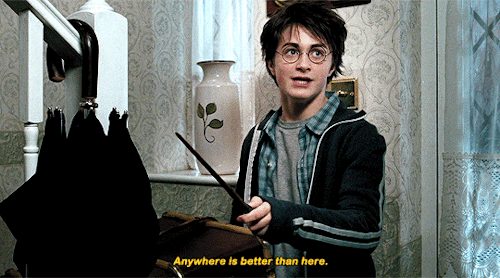
Another example is the Invisible Children(IC) which is described as a movement that was built around a documentary.It focuses particularly on the hardships faced by child soldiers recruited into the Lord’s Resistance Army and efforts to increase public awareness of the human rights violations and genocide conducted by a warlord in Uganda. The documentary was a success and in response to that, the filmmakers established IC to inspire young people to use the power of the media to help end Africa’s longest running war. Recently, the campaigns are focused on raising awareness regarding the war in Uganda. It has also urged the US government to pass the Northern Uganda Recovery Act and the Lord’s Resistance Army Disarmament and in May 2010, this was successfully achieved.Now, the Invisible Children puts focus on Uganda’s long-term development and creating infrastructure in the Congo.

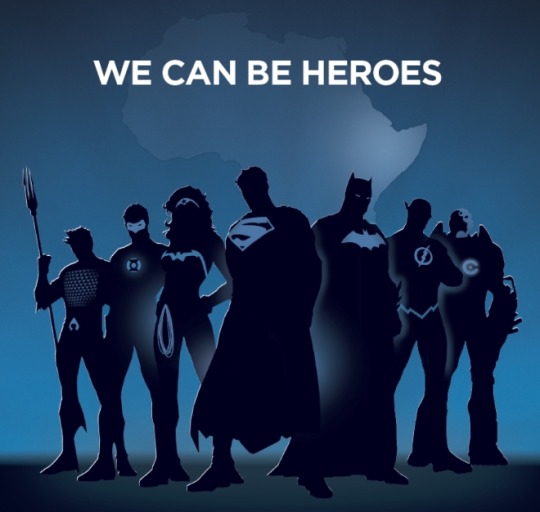
Unlike the HPA, IC requires us to have a greater understanding regarding fan activism. HPA was built on existing fan community and popular culture while IC was created by activists’ goals and has almost inadvertently built a fanlike public around a self-produced documentary. Despite that, the organization itself acknowledges that the members of IC resemble fans in many ways such as having an avid knowledge of its narratives and sharing enthusiasm for the media. The members also share a wide range of practices of collectively consuming and producing around IC media products. These two organizations provide us with different representations of the interrelations of fandom and activism.
“Isolated passive consumers” are what media fans have been stereotypically labelled as but I personally think that their consumption is rarely ever isolated or passive and many fandoms these days have become household names and has brought huge impact to people around the globe such as the Potterheads.They are more than just passive consumers because fans seek out content and integrate the cultural capital that they love into their daily activities and conversations.
The Internet, media and social networking sites have become a huge part of our lives and it is unavoidable that social action would intertwine with them. If one of the primary purposes of the Internet has been the production and sharing of media, then it is an ideal setting for the formation of online communities based on media experiences.
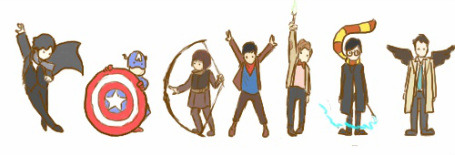
Some fans resists the efforts of bringing politics into their fandom and that their fan activities are merely seen as a way to release pressures of everyday life or preferring the term “charity” over the more political term “activism” as a way to describe their pro-social efforts. However, fandoms are valuable and unique in their own ways.
Before I end my post, I would like to ask an important question
Which fandom(s) do you belong to?

1 note
·
View note
Text
Week 9: Fandom & Activism
Fans or Fans?
Fan: When a person admires, supports or expresses an interest in loving someone or something in particular (Definition of ‘fan’ n.d.).


What's Fan Community or Fandom?
According to Morrison (2016), fandom means groups of people that share a same interest and are drawn together by that interest.

What Makes Fandom & Tumblr Such A Perfect Match?
Tumblr is the most popular site for fans because of its user experience, which is designed to appeal those enthusiasts. Tumblr, in contrast, to the majority of social media platforms allows users to customise and update their content according to their personal enthusiasms and preferences. As an example, Tumblr users may pick and filter what they want to view, as well as engage in conversations over who or what various fandoms believe is superior.

In my perspective, the media's portrayal of fandom is unnecessarily dramatic with claims made that fans are "crazy" and "overly passionate". The experience of being a fan is not strange or overly emotional. It is a moment of being enthusiastic about someone or something that may be shared with others who have similar interests. Despite the fact that there are a number of people who are truly 'strange' and 'overly emotional', the media should refrain from categorising all fans in the same way. It is perfectly fine to show one's interests and enthusiasm; nevertheless, it is not acceptable to engage in unethical behaviours such as breaching the law or invading private property like stalking and kidnapping celebrities. Starting a fan war amongst fandoms is also against the rules since there should be boundaries. In spite of this, I don't consider myself "strange" or "overly emotional" because of my enjoyment towards Korean pop culture and dramas. My best friend and I initially met because we both had an interest in music, and that shared interest led to the formation of a group known as fandom, a community of individuals who have a common interest in the same type of music.

What's Fan Activism?
Fans from different fandoms who have an interest in social and political issues have formed this participatory culture (Fan Activism - A Fan’s guide to fan activism n.d.).

Is Fan Activistism Too Extreme?
Fan activism takes place online, and many people take it for granted that they may spark rumours and disputes that eventually result into a rivalry between two groups of fans. In a sense, it has led to the persecution of diversity, as individuals with differing viewpoints dispute and that eventually escalates into an internet fight. However, most of these fans or fandoms came together and formed connections that stand for what they believe in, therefore fan activism is still fine unless individuals start to misuse their power of social media identities to persecute differences.
References
Definition of ‘fan’ n.d, Collins Dictionary, viewed 4 November 2021, <https://www.collinsdictionary.com/dictionary/english/fan>.
Escribano, U n.d, Tumblr and fandom: a match made in heaven, The Daily Fandom, viewed 4 November 2021, <https://thedailyfandom.com/tumblr-fandom-match/>.
Fan activism - a fan’s guide to fan activism n.d, Weebly, viewed 4 November 2021, <https://fanactivism.weebly.com/fan-activism.html>.
Morrison, M 2016, ‘ What Is fandom and why is it important?’, Odyssey, viewed 4 November 2021, <https://www.theodysseyonline.com/what-is-fandom-and-why-is-it-important>.
0 notes
Text
FANDOM | FAN ACTIVISM

Not this fan. I know its hot as we are living in a tropical continent.

But this FAN what we’re talking about.
Everybody in the world has their own fan favourite that they admired with ever since they have their interest to be part in it.
What is Fandom?
Fandom is somebody that is obsessed with a particular celebrity, band, singer, actors, somebody who can produce seams of information on their object of fandom and can quote their favourite lines or lyrics.
Benefits of fandom

There are many benefits to building Fandom such as:
1. Cost effective where fans acquired are kept and accumulated over time.
2. Open conversation where an individual can share with the fans on brand values, promotions, feedback and information.
3. Focused interactions where fans form a special group of consumers who explicitly say they want to interact with us
4. Grow loyalty is where fans can become strong advocates and customers of our brand and services.
Fan activism?

Fan activism is just that. Fan activism can be defined as a form of civil engagement and political participation that emerges from the passions of fandoms and fan culture. Fan activism can be fan-driven efforts to engage and address civic, social, and political issues. There is significant power and potential of fan activism. Fandoms can be ideological and cultural resistance to heteronormative and patriarchal values of society. The capacity of fan communities to unite and mobilize in reaction to casting decisions, show cancellations, etc. is well established. Now, these collective mobilization efforts are being used to support campaigns for social justice and human rights, inspiring young people to engage.
High end of fandom

The new age of pop-culture acceptance and appreciation, where comic book movies are mainstream and embracing geek culture is considered cool, if not all right. And for the fans who have grown up into adults with expendable income, collectibles have become more high-end, and transcend toys and figurines. (Yee 2017)
Fan advertising #GE14

In the just concluded 14th Malaysian general election where the 61-year long-ruling coalition lost their opportunity to win back their seats in power has tremendously did their role in getting over with fans to support them, buy back in terms of monetary or gifts in the order they will run back in power of the country. From the picture above a youth chief of National Front party. Khairy Jamaluddin (Barisan Nasional in Malay) posed with Wakanda greetings, something unique to draw back nation’s attention in winning back.
Within hours, Khairy’s post received over 27,000 likes. (Adiah 2018).
However come to the opposition fighting alliance, Peoples’ Justice Party (Parti Keadilan Rakyat in Malay). With just an hour later, PKR’s Nurul Izzah Anwar, who has over 160,000 followers on Instagram, posted a fan art of herself as a Wakandan spy and T’challa’s love interest, Nakia.

Nurul Izzah’s post garnered over 12,000 likes, less than half of what Khairy received although the gap between their posts was merely an hour apart. (Adilah 2018)
See the difference? It’s all about individual’s perception of where and who would be getting more attracted to the views as well as the person’s ability to lead the nation.
#MDA20009#digitalcommunities#fandom#fanactivism#activism#politics#famous#malaysia#GE14#blackpanther#wakanda#weeklyblog
4 notes
·
View notes
Text
Fan Activism

This post (and the posts that follow) is about “Fan Activism” and the examples that I have found while surfing the internet. I would like to start off by defining fan activism. Fan activism can be defined as as a form of civil engagement and political participation that emerges from the passions of fandoms and fan culture. According to John Sullivan, in his text “Media Audiences”, he says “Fan related activities are built largely around a close affiliation with the popular texts at the center of the enthusiasm.” With the examples to follow you will see how these fans use their favorite media to make a difference in their community. Fans can be moved to press producers and media corporations for change (or to prevent change). A big reason for these organizations becoming popular is the emergence of social media and its power to connect those around you. My blog is focused on fan activism from the “civil engagement” standpoint which means these activists are working to make a difference in the civic life of our communities and developing the combination of knowledge, skills, values and motivation to make that difference. They can do this through fun raisers for different charities or looking for better representation for people of a different race, gender, or sexual orientation. I will go further in to fan activism using the examples; The Harry Potter Alliance, 501st Legion - Vader’s Fist, The NerdFighters, and The Glee Equality Project.
0 notes
Photo

Party with Crunchyroll at San Diego Comic Con Panel, Concert, Giveways and more #SDCC2022 #Crunchyroll #DragonballSuper #88Rising #ATARASHIIGAKKO! #JPop #DJJunInagawa #Panel #Giveway #DanceParty #Panel #FanActivation #CherryLosAngeles https://sbee.link/cmejxwhv37 https://www.instagram.com/p/CgINTYavLxH/?igshid=NGJjMDIxMWI=
#sdcc2022#crunchyroll#dragonballsuper#88rising#atarashiigakko#jpop#djjuninagawa#panel#giveway#danceparty#fanactivation#cherrylosangeles
0 notes
Text
This Week in Wizard Activism
This Week in Wizard Activism, celebrate Fandom Forward's 15 years of youth activism with us! https://medium.com/the-harry-potter-alliance/this-week-in-wizard-activism-15-years-of-youth-advocacy-8449eab7aa47
2 notes
·
View notes
Link
[0.1] Abstract—In 2009, Supernatural (CW, 2005–) actor Misha Collins tweeted to his followers in an effort to raise government funds for nonprofit initiatives, resulting in the fan-made website Minion Stimulus whose creator Collins later approached about growing the site into a private charity, Random Acts. The circumstances of Random Acts' inception paved the way for Collins' current philanthropic strategy, which operationalizes fan activism for social good. Collins' approach to fan mobilization takes place on social media, which he has used to effectively operationalize the potential of fan activism.
[0.2] Keywords—Celebrity studies; Charity; Civic engagement; Fan/celebrity relationships; Fandom; Parasociality; Politics; Social Media
Xanthoudakis, Alex. 2020. "Mobilizing Minions: Fanactivism Efficacy of Misha Collins Fans in Supernatural Fandom." In "Fandom and Politics," edited by Ashley Hinck and Amber Davisson, special issue, Transformative Works and Cultures, no. 32. https://doi.org/10.3983/twc.2020.1827.
#misha collins#transformative works and cultures#acafandom#new cohort#🥳#congrats to the author#who is a mutual
28 notes
·
View notes
Text
Guess who officially presented at her first conference, guys? And on Misha and Supernatural Fanactivism Efficacy?
35 notes
·
View notes
Photo

All I want for Christmas is basic human rights and standard of living. Diving into doing what I can. #fanactivism #HPA #theharrypotteralliance #wandsup #nomutantregistration
0 notes
Photo

I took this picture almost 2 years ago. It was a gift from my husband. It seems fitting (again as we had a question about it in the last test) that Chapter 67 talks about The Last Airbender series. The sequel was The Legend of Korra. As much as I understand the problems that come with the appropriating of various cultures to make the fictional nationalities in the original and in this one, I can’t help but admit that I absolutely love both series. (I immediately thought about this guilty pleasure when we watched the Bad Feminist Ted Talk). As chapter 67 mentioned, this show itself had some problems with the building of the characters through deconstructing various native cultures. However, the real storm came when the motion picture movie was released and the cast was 99% white. Needless to say the movie tanked and the expectations for this sequel where almost non-existent. The series was most definitely structured a bit differently as it was set a several decades into the future from where The Last Airbender took off. It still had various native elements but it primarily focused on a more industrial world. They had cities, cars and a much more advanced infrastructure. They even depicted the cultures mixed and focused more on the way they had integrated into “modern” life. But beyond that, there was obviously still a big fandom behind it. Like me, there were many that still stayed on The Avatar boat despite the issues left from the last series. And this one gave hope right off the bat by having a female avatar. Korra, was portrayed as strong and flawed. She had depth to her beyond a perfect heroine. Which there were strong female characters in the original series but having a leading female, really pushed the fans to excitement. Needles to say, the fans were involved across all platforms. There was fan art generated, fan fiction, fan blogs and in some opinions, they shaped the shows ending. Korra starts off in a Hetero romance triangle but as the show passed fans voiced their preference that they wanted her to end up with another main female character, romantically. The show made wishes come true, in a sense, during the finale (sorry spoilers) when they alluded to a relationship between the two as they run off together into the spirit world. The show had alluded to them in some sort of relationship prior to that as well by writing words of care and love for one another in later seasons. The voice of the fans was a catalyst for this representation. As a kid show, anything beyond hetero-normativity is a tad rare. Or at least up until recent it has been. Although they weren’t necessarily aiming for a bi-sexual representation, the voice and trans-media content produced by the fandom, shaped the show to represent a gender fluid character that normally isn’t seen on prime time. Korra does show interest in males in the show as well, which puts in question the idea that sexuality is more on a spectrum as opposed to the binary model pushed to be true.
-Priscila Chavez
0 notes